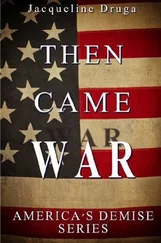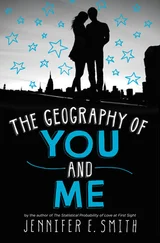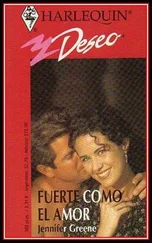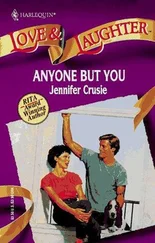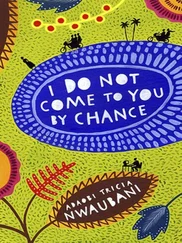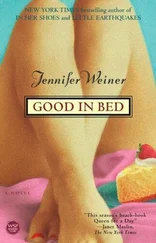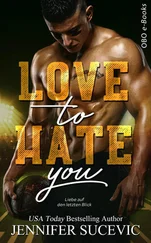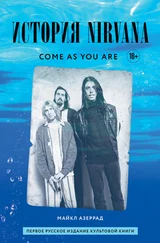One of the criticisms of chick lit that’s always bothered me is that the books don’t deal with questions of class and money — that they’re always about upper-middle-class women obsessing about their weight and soothing themselves at the mall. I think that any book about a young woman starting out in the world — first jobs, bad bosses — necessarily takes on questions of economics, whether it’s done in a comical, over-the-top way (see: Shopaholic ) or a very poignant, realistic way (see: Free Food for Millionaires ).
With Then Came You , I wanted to look at how larger questions of financial inequities inform the process of having a baby by surrogate — how it’s always women of means hiring less-well-off women to perform a physical task; how it is, at its core, a transactional relationship that sometimes morphs into a friendly or even familial one. I’m interested in questions of how people treat each other, and how money, and guilt over having it, or resentment over not having more, comes into play. I loved exploring India’s ambivalence at hiring a woman to do something she couldn’t do, and Annie wondering whether India secretly resented her for being able to do the one thing that she couldn’t.
The scene with Laurena Costovya, the performance artist, and India, is such a compelling and memorable one. What was the inspiration behind this?
I saw Marina Abramovic’s installation at the Museum of Modern Art last year. She performed a piece called “The Artist is Present” where, like Laurena, she sat at a table for eight hours a day, not moving, not speaking, and looked at whoever came to sit across from her. I chose not to be one of the sitters, but I wondered whether being viewed that way would have some kind of impact…whether the people in the hot seat would feel compelled to start blurting out their deepest, darkest secrets, or if they’d feel like they were being known and seen in some ways. It reminded me of the Nietzsche quote, about how when you look into the abyss, the abyss looks into you.
Then Came You is very much about family — how the families we are born into might fail us and how the families we create might save us. Many of your previous novels have tackled this issue as well. Why is this theme so important to you?
Some author — I can’t remember who — said that fiction is born from a disordered mind’s desire to create order. I think that my fixation with “found families” comes from that place. Life is messy; the family you’re born into doesn’t always function the way you wish it would, but when you grow up you get to pick the people who you’ll spend your life with. That idea’s always comforted me, and I think it’s one that resonates with readers, who might identify with Annie, and her rivalry with her sister, or Bettina and Jules, who each wind up parenting their own parents, or India, whose family failed her so completely. There was something so satisfying about a scenario in which all of the women get a second chance, to build a better family, and I liked exploring the choices that each one of them made.
When you begin crafting a character, what tends to come first for you — their name? Personality? Physical attributes?
Usually, it’s knowing how they sound that comes first. I start hearing their voices. Then I figure out their names. Then — belatedly and badly — I come up with their physical attributes. Then my first readers point out that every woman in the book is tall and blond. Then I go back and fix it.
In the past year, you have been an outspoken critic of the New York Times Book Review for what you see as their bias towards covering “literary” versus “commercial” fiction, as well as their tendency towards reviewing books by male authors more frequently than those by women. How related are these two issues, in your mind? In the ten years since you published your first novel, have you seen any changes in the way that commercial fiction or female authors are covered by major review outlets?
Ah, yes. My ill-advised quest for equality in book reviewing, which began with a guy who does interviews about what kind of hand-sewn shirts he prefers calling me a fake populist, peaked when a quote-unquote literary novelist said I had no right to be reviewed because I “churn out” a book every year and sell them at Target (shocking!), and ended with the editor of a highbrow publishing house making fun of my made-up German in the New York Times . What a fun-filled few months it was.
Honestly, it seemed like such a basic thing to point out: the Times reviews bestselling mysteries and thrillers and genre books that men read and write. Shouldn’t the paper of record cover genre fiction written by and for women, too? Turns out, the answer is “no!” And also, the answer is “ur boox suck!” And that was just what I was hearing from my family. Being a standard-bearer? Not a lot of fun.
All kidding aside, there’s two issues. One is that genre fiction by women does not get the attention that genre fiction by men does. The second, in my mind related concern, is that literary fiction by women does not get the attention that literary fiction by men does. A woman can write a brilliant literary book, get two great reviews, and maybe, like Mona Simpson, get profiled in the Times’ Styles section, where much will be made about her apparel and her hairstyle. A man can write a brilliant literary book, and the double review is only the beginning — there’s the long, loving magazine profile (the Sunday Times Magazine rarely writes up female authors, and, when it does, instead of the warm embrace, they are held at arm’s length—“The Strange Fiction of Suzanne Collins,” anyone?), the op-ed pieces and book reviews he’ll be asked to contribute, the talk shows and magazine covers he’ll end up on.
After Jodi Picoult and I raised the issue, Slate ran the numbers and found that of the 545 books reviewed between June 29, 2008 and August 27, 2010, 62 percent were by men. Of the 101 books in that period that were reviewed twice, a whopping 71 percent were written by men. A few months later, an organization named VIDA did a study revealing that the ratio of men to women published was even worse in literary magazines and quarterlies like The New Republic and The Paris Review (edited by Mr. Made-to-Measure. Who was quickly profiled in the Times) .
The depressing part is that, even after bestselling female authors pointed out the issue, even after the numbers confirmed that, yes, Virginia, there is a problem, the Times hasn’t changed…in fact, the paper seems to have dug in its heels and gotten even worse (double reviews for Elmore Leonard and John le Carre, nothing at all for Terry McMillan; feature on guy who wrote dopey self-help book The Four-Hour Work Week , no profile of Karen Russell, whose Swamplandia! has been one of the most-praised novels this year). When Jennifer Egan won the National Book Award, the Los Angeles Times decided that big news wasn’t that she’d won but that Jonathan Franzen had lost. The paper illustrated its story about Egan’s victory with a shot of Franzen, later offering the explanation that it simply couldn’t find a current shot of Egan. Because…its Internet was broken?
It’s a bad situation and one that, I’m sorry to say, seems unlikely to improve in my lifetime. But I have daughters…and, because I have daughters, I don’t think I have the luxury that some of my chick-lit colleagues claimed, the privilege of sitting prettily on the sidelines and saying, “Oh, yes, well, it’s terrible, and of course girl books deserve as much attention as boy books, but I can’t fix it, so who wants to hear about my juice fast?” I’d like to leave the world a better place than I found it, and if one of my girls ends up a writer, I'd like to believe that things will be a little more fair — that there won’t be the immediate assumption that whatever they’ve written is less worthy than it would be if they were men.

